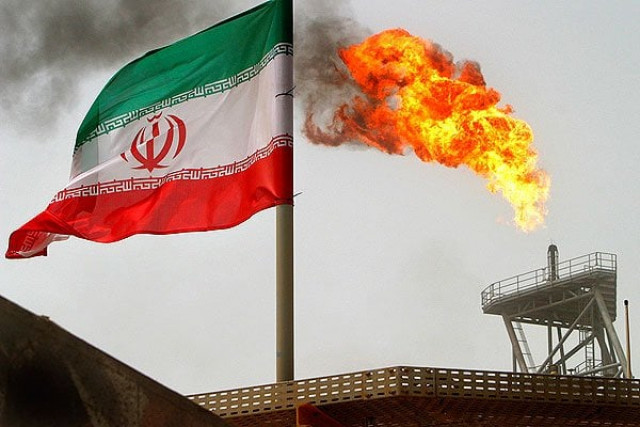Analysis: How US and EU curbs on Iran affect Pakistan
We can either use dollars and euros, or we can do business with Iran, not both.

For all the talk of a rift between Pakistan and the US, the Pakistani reaction – both that of the government and the country’s businesses – to sanctions against Iran suggests that Pakistan firmly intends to stay within the global economy dominated by US and European rules.
The sanction – imposed by the United States and the European Union to pressure Tehran into giving up its nuclear programme – primarily target the Iranian oil industry, but they do it by using the financial system. The US Federal Reserve, the Bank of England, and the European Central Bank have essentially banned any financial transactions with Iran for banks that fall within their own jurisdiction. How does this affect Pakistani banks? They can either choose to conduct transactions with Iran, or they can choose to continue dealing in dollars, pounds and euros. Which do you think they will choose?
Virtually all global trade across borders takes place in either US dollar or euro-denominated contracts. To lose the ability to transact in these currencies means to lose the ability to finance any of Pakistan’s exports or imports, not just those going in and out of Iran. (For nearly all international trade transactions, even if the buyer has the cash in advance, the transaction goes through banks.)
And this reflects an important point: for all the recent talk of Western decline: New York and London remain the capitals of global finance, giving the US and British governments enormous power over the world economy, should they choose to exercise it.
Of the Pakistani banks, only National Bank and Habib Bank have branches in Iran, but these banks are very unlikely to actually use their presence in Tehran to finance trade between Pakistan and Iran, forcing any parties still interested in doing business with Iran to do so in cash. This necessarily limits the amount of money that can be involved in such transactions, since it is both inconvenient and dangerous to carry around millions of dollars in banknotes of any currency.
“There are many Iranian banks that have not been blacklisted, but there is an unwritten ban on facilitating any trade activities between Pakistan and Iran,” said Safdar Hussain, vice president of the Rice Exporters Association of Pakistan.
In many ways, however, Pakistan has already begun implementing the sanctions against Iran. Pakistan’s imports from Iran fell by 66% in 2011 to just $304 million, compared to $884 million in 2010. The drop in oil imports is even more dramatic: Iran was Pakistan’s fourth biggest supplier of oil in 2008, behind the United Arab Emirates, Saudi Arabia and Kuwait. In 2011, that rank slipped to 20th. At this point, Pakistan can completely eliminate Iranian oil imports by increasing shipments from the UAE by just 0.6% per year.
The worry for most Pakistani businesses is on the export side. Pakistan’s exports to Iran were worth $426 million in 2008, but have since dropped to just $153 million in 2011. Rice constitutes about half of all Pakistani exports to Iran, and the rice exporters association has been extraordinarily frustrated by the attitude of the banking system towards Iran.
“Food items are exempt from sanctions. But our banks are interested in being more loyal than the king,” said Hussain.
Sources said that the State Bank of Pakistan appears to have gone back on its commitment to help rice exporters find a way to conduct transactions with Iran, without violating the sanctions.
However, this would involve transacting directly between Pakistani rupees and Iranian riyals. The Iranian riyal has plunged in value by over 40% during the past year and a half, and looks set to keep on dropping. In addition, it is a highly illiquid currency, meaning that Pakistani banks would essentially be sitting on worthless paper to finance transactions on which they would not be able to charge a high enough risk-premium without triggering a customer backlash.
It is likely that the banks – and the government – feel that exports to Iran are not worth getting bothered over. The country accounts for only about 0.6% of all goods exported by Pakistan. That seems too small a number to lose the ability to transact in dollars and euros over.
Published in The Express Tribune, July 5th, 2012.



















COMMENTS
Comments are moderated and generally will be posted if they are on-topic and not abusive.
For more information, please see our Comments FAQ